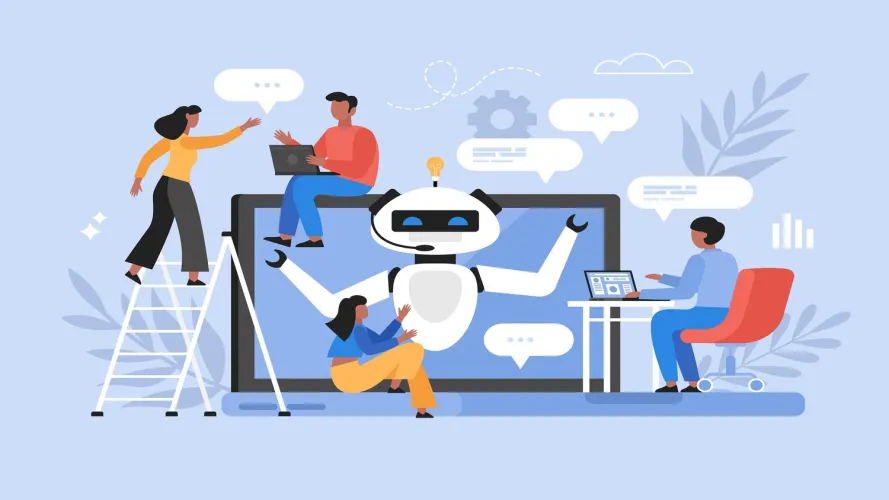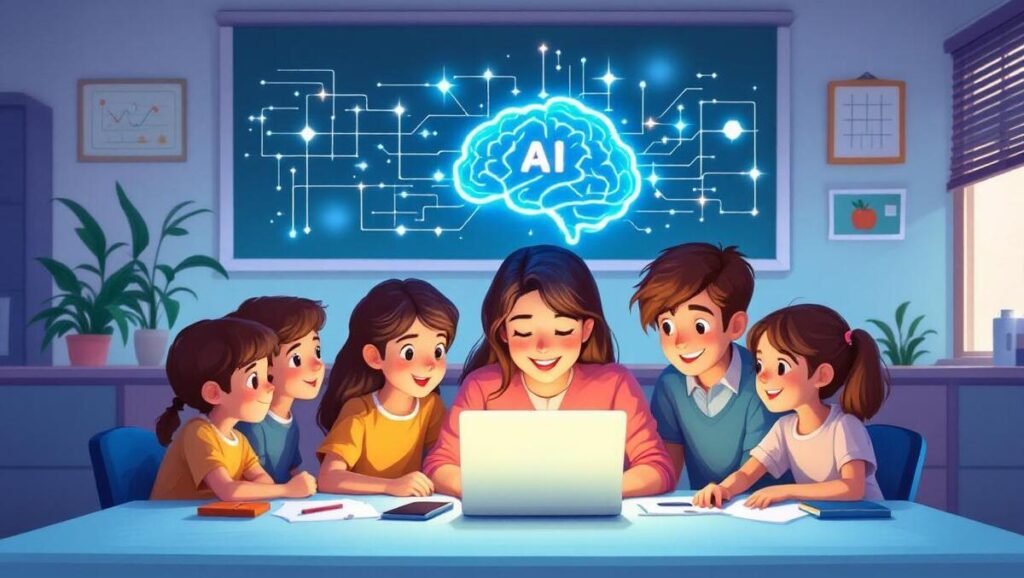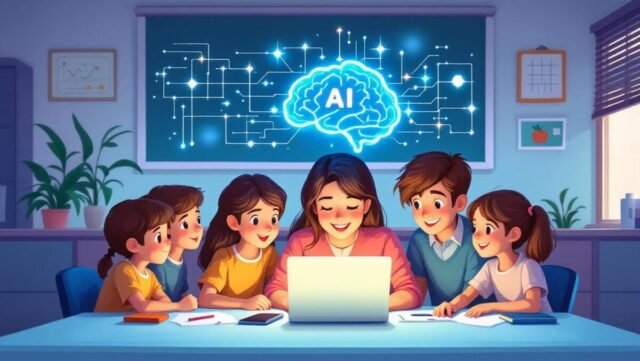The Brain Builders Youth Development Initiative (BBYDI) has taken a bold step to ease growing public fears surrounding the spread of artificial intelligence (AI) across Nigeria. Through a new national campaign tagged “AI Literacy for Everyday People,” the organisation seeks to promote understanding of AI technologies and show how they can be used safely and responsibly.
The event, held at the Nigeria Union of Journalists Hall in Osogbo, Osun State, brought together journalists, students, teachers, and civil society advocates. It focused on how Nigerians can adapt to AI-driven change while ensuring the technology supports national development rather than replacing human potential.
Speaking during the launch, Sanni Alausa Issa, BBYDI’s Communications Director, said the initiative is part of the group’s effort to reduce public fear and misinformation about AI. According to him, AI Literacy is essential if citizens are to use the technology productively without falling victim to its risks.
“People are afraid because they do not understand AI,” Issa explained. “Our goal is to build AI Literacy at every level — from schools and media organisations to market traders and artisans. The more people know, the more confident they become about engaging with new technologies.”
He emphasised that the initiative aligns with global conversations on ethical AI use, digital inclusion, and responsible innovation. “We cannot afford to be left behind in the AI revolution,” he said. “Nigeria must lead with knowledge, not fear.”

Table of Contents
Addressing Public Concerns: Jobs, Privacy, and Regulation
During the session, experts discussed major concerns surrounding AI, such as job displacement, data privacy, and overdependence on machines. Participants acknowledged that while AI has the potential to improve efficiency and productivity, it could also cause economic and ethical challenges if not properly managed.
Issa admitted that automation is already changing work patterns across the world but stressed that AI Literacy could help Nigerians prepare for those changes rather than resist them. “Every technology disrupts jobs, but it also creates new ones. The real challenge is training people for the jobs that AI will create,” he said.
The BBYDI director added that AI Literacy would also help Nigerians understand their data rights and the importance of digital protection. “Many citizens unknowingly share personal data online daily. When people are educated about AI systems, they can make informed choices about what data they share and how it’s used,” he noted.
Participants at the event called on government and tech companies to ensure transparency in deploying AI-powered tools, especially those that collect user data. They urged the establishment of clear policies to regulate AI in Nigeria, prevent discrimination, and ensure human oversight in automated decision-making.
“AI should always complement human effort, not control it,” Issa said. “Our advocacy for AI Literacy is about empowering people to understand what these tools can and cannot do. Knowledge is the best form of protection.”

Collaboration for Responsible AI and Local Innovation
The BBYDI team stressed that tackling fears about AI requires collaboration among government, academia, civil society, and the private sector. The group called for a coordinated national strategy that includes AI awareness, local capacity building, and ethical guidelines.
Issa explained that BBYDI will partner with educational institutions to incorporate AI Literacy into school curricula and community learning programmes. “We are ready to work with the Federal Ministry of Education, universities, and innovation hubs to develop modules that teach practical and ethical AI use,” he said.
He also noted that the AI Literacy for Everyday People project was designed to support Nigeria’s ongoing curriculum reforms aimed at promoting digital skills among young people. The initiative, he said, will help ensure that students, workers, and entrepreneurs are prepared for an economy increasingly shaped by artificial intelligence.
At the event, speakers also encouraged the use of local data and talent in developing AI solutions suited to Nigeria’s realities. They emphasised that foreign-designed AI models often fail to understand the country’s languages, culture, or economic conditions, making homegrown innovation critical.
“AI development must reflect our values and priorities,” Issa said. “We cannot just import technology without questioning its fit. Our local developers need support to build tools that work for Nigerian users. That is why AI Literacy must also include local capacity building.”

The Nigerian Context: Promise and Precaution
Nigeria stands on the edge of a technological shift. Experts agree that AI could transform sectors such as agriculture, education, healthcare, and governance — if deployed responsibly. However, they also warn that without widespread understanding, the benefits could remain limited to a privileged few.
The BBYDI highlighted that Nigeria faces unique challenges in adopting AI, including weak digital infrastructure, low awareness in rural areas, and limited regulatory oversight. To close these gaps, they urged both federal and state governments to establish frameworks that promote safe AI adoption while protecting citizens’ rights.
“The aim is not to resist AI but to guide it,” Issa stated. “AI can help us detect diseases earlier, manage farms better, and make cities smarter — but only if we approach it with proper planning and public understanding. That’s the essence of AI Literacy.”
Experts also cautioned against overhyping AI as a magical solution to every problem. Instead, they recommended an evidence-based, people-centred approach that keeps human oversight at the core of every decision-making process.
In a joint communiqué issued after the event, BBYDI and its partners reiterated their commitment to continuous public education on digital ethics, AI transparency, and inclusion. They announced upcoming town hall sessions, community workshops, and school campaigns across Nigeria’s six geopolitical zones to spread the message of AI Literacy beyond urban centres.
Conclusion
The “AI Literacy for Everyday People” campaign represents more than a public-awareness effort — it is a step toward building trust between Nigerians and emerging technologies. For the BBYDI, the real goal is not to stop AI from advancing, but to ensure Nigerians advance with it.
As Issa concluded, “Our mission is simple — to turn fear into understanding, and uncertainty into empowerment. AI Literacy gives Nigerians the confidence to shape their own future in a world powered by technology.”
With initiatives like this, Nigeria is gradually positioning itself not as a passive consumer of AI, but as an informed participant — one capable of ensuring that the benefits of artificial intelligence are shared widely, fairly, and safely.
Join Our Social Media Channels:
WhatsApp: NaijaEyes
Facebook: NaijaEyes
Twitter: NaijaEyes
Instagram: NaijaEyes
TikTok: NaijaEyes





